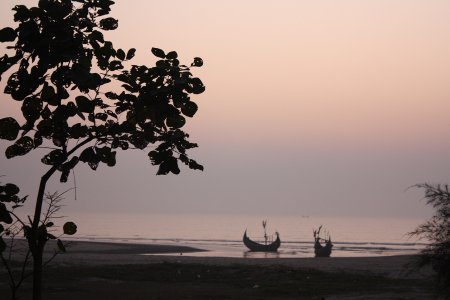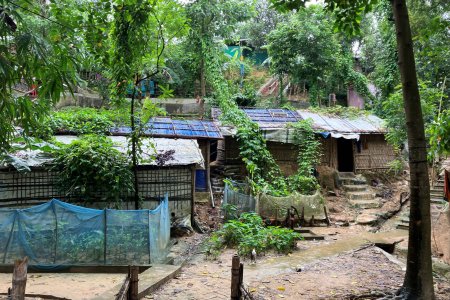 Michaël Neuman
Opinion
Michaël Neuman
Opinion
10/31/2023
Michaël Neuman
This article was published in the London Review of books website on September 8, 2023. The former evokes the dire conditions in which roughly 1 000 000 Rohingyas live in Cox’s Bazar, the largest refugee camp in the world. In this coastal district in south-east Bangladesh, the humanitarian deployment is impressive, but commitment by donors is waning. Between March and June, monthly food allocations fell from $12 to $8 per person. The difficulties of accessing care, the social control to which they are subjected and the lack of prospects are many reasons explaining the perils faced by the Rohingya population.
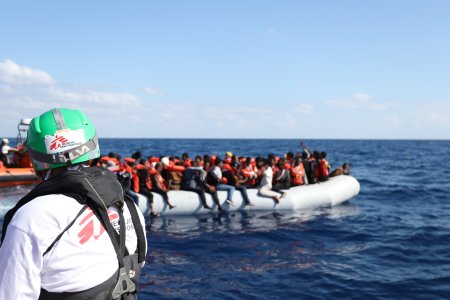 MSF/Mohamad Cheblak
Analysis
MSF/Mohamad Cheblak
Analysis
10/05/2023
Michaël Neuman
In Groupe URD's new issue of "Humanitaires en mouvement" (n°25), Michaël Neuman describes rescue operations in the Mediterranean and the strategies put in place by MSF to adapt to the constraints imposed by governments.
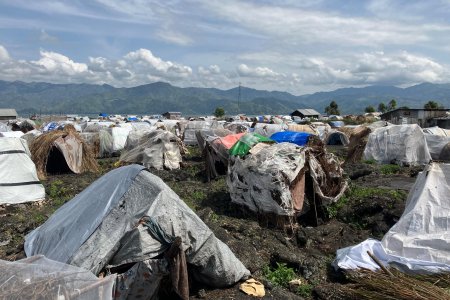 MSF/Michael Neuman
Opinion
MSF/Michael Neuman
Opinion
06/16/2023
Michaël Neuman
Michaël Neuman describes his visit to Goma’s IDP camps, where he spent two weeks. He shares his dismay at the low level of assistance provided by the aid sector, especially when we recall that the Sphere standards, born precisely out of the failure of the humanitarian response in this same region of Goma in the mid-1990s, were conceived and championed by all of us.
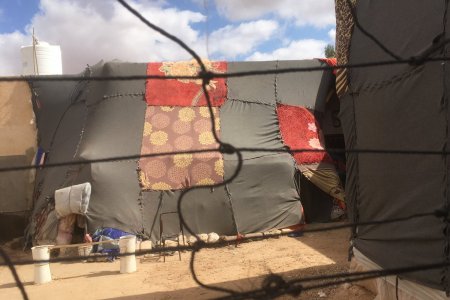 Michaël Neuman / MSF
Opinion
Michaël Neuman / MSF
Opinion
03/02/2020
Michaël Neuman
Michaël Neuman spent ten days in Libya with Médecins Sans Frontières teams working in detention centres for migrants. From his stay, he brings back the following impressions that illustrate the gloomy situation of the people who are held there, for months or years, and the even more difficult situation of all those subject to kidnapping and torture.
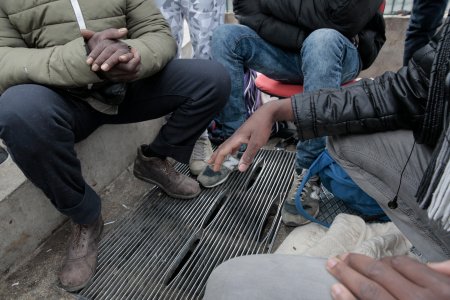 Antoine Kremer/MSF
Analysis
Antoine Kremer/MSF
Analysis
05/07/2019
Michaël Neuman
In the summer of 2015, the French section of Médecins Sans Frontières started aid projects for migrant populations in Greece and France. The launch of these operations was the occasion for lively discussions within the association, both in terms of public positioning (how to justify an intervention in a rich country and not get lost in "political" territory?), and in terms of revising our operating methods, knowing that the primary needs of migrants were not primarily medical. Some people then recalled the association's militant practices in the 1990s, which were sometimes considered as abuses. By retracing the history of the French Mission, Michaël Neuman seeks to understand, with regard to the migration issue, the complex articulation between operational constraints, political positioning and militant practices.
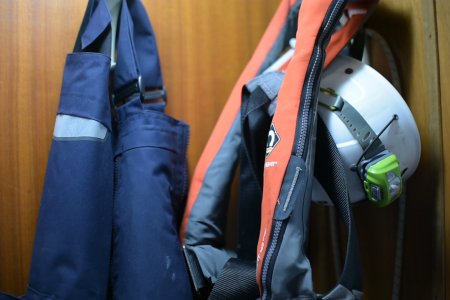 Ikram N'gadi
Op-ed
Ikram N'gadi
Op-ed
Le Monde
12/12/2018
Michaël Neuman
Mego Terzian
Dont acte, la politique de harcèlement judiciaire, administratif, politique aura eu raison de l’Aquarius, déployé entre 2015 et le milieu de l’année 2018 en mer Méditerranée.
Tribune de Mego Terzian (Médecin, président de Médecins sans frontières) et Michaël Neuman (Directeur d'études au CRASH de MSF) publiée le 07 décembre 2018 dans Le Monde.
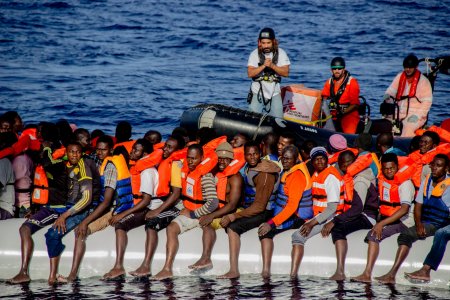 Borja Ruiz Rodriguez/MSF
Op-ed
Borja Ruiz Rodriguez/MSF
Op-ed
07/11/2018
Rony Brauman
Humanitarian organisations coming to the rescue of migrants in the Mediterranean Sea are kindly required either to watch them drown or to hand them over to human traffickers and torturers. We have seen countless political statements, opinion polls and editorials on the need to take a harder line against African migrants and accusing NGOs of being the accomplices of “smugglers”. We have even heard it said that these NGOs are organising the departures of those aspiring to migrate to Europe coincide with the presence of a rescue ship, making relief workers conscious actors in a criminal enterprise.
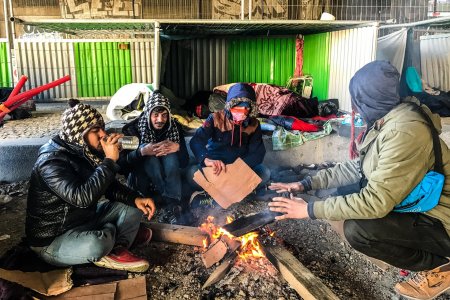 Mohammad Ghannam/MSF
Review
Mohammad Ghannam/MSF
Review
05/31/2018
Elba Rahmouni
Thanks to the migrant crisis, or the reception crisis as it would be more appropriate to call it, the issue of hospitality is back in the forefront. On 17 May, the Maison des Métallos organised a conference with two social science researchers - Michel Agier and Benjamin Boudou - and an NGO manager Cécile Poletti to discuss existing tensions between private hospitality and public hospitality.
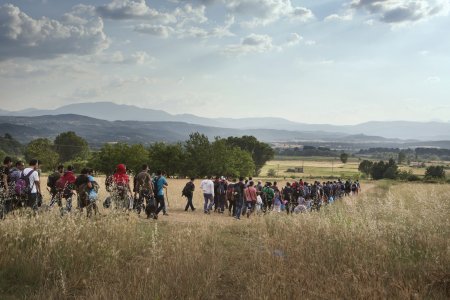 Alessandro Penso
Op-ed
Alessandro Penso
Op-ed
01/12/2018
Michaël Neuman
Abstaining from participation in a meeting taking place this coming Thursday, MSF feels that "government officials have listened politely at best and shown condescension and contempt at worst in response to positions expressed in meetings, op-ed pieces published in the press and questions asked in meetings by NGOs" and do not hide "a policy that is sliding into harsh repression".
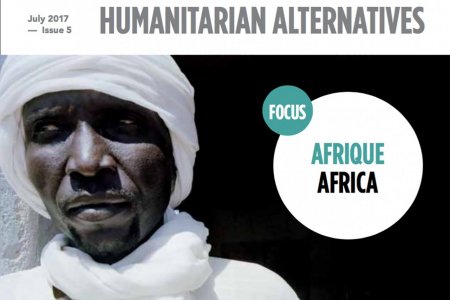 Alternatives Humanitaires
Interview
Alternatives Humanitaires
Interview
07/05/2017
Marc Le Pape
Marc Le Pape, sociologist and member of MSF-Crash Scientific Committee, is interviewed by Boris Martin, Editor-in-chief of Alternatives Humanitaires, about his and Jean-Hervé Bradol's latest book "Humanitarian aid, genocide and mass killings: MSF, the Rwandan experience (1982-1977)".
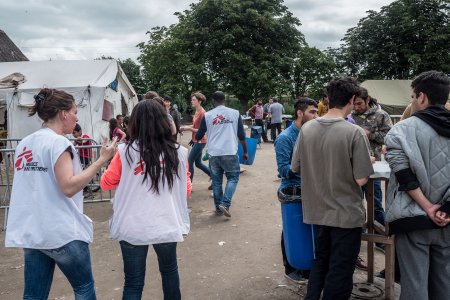 Charles Habib
Analysis
Charles Habib
Analysis
07/05/2017
Michaël Neuman
Franck Esnée
Following the dismantlement of the Basroch camp in Grande-Synthe and the resettlement of refugees in the new La Linière camp, in the spring 2016, Michaël Neuman and Franck Esnée wanted to focus their analysis and story on the “camp” – as an object –, its nature and management. This article was originally published in Alternatives Humanitaires #5, in July 2017.
 Michaël Neuman
Opinion
Michaël Neuman
Opinion









